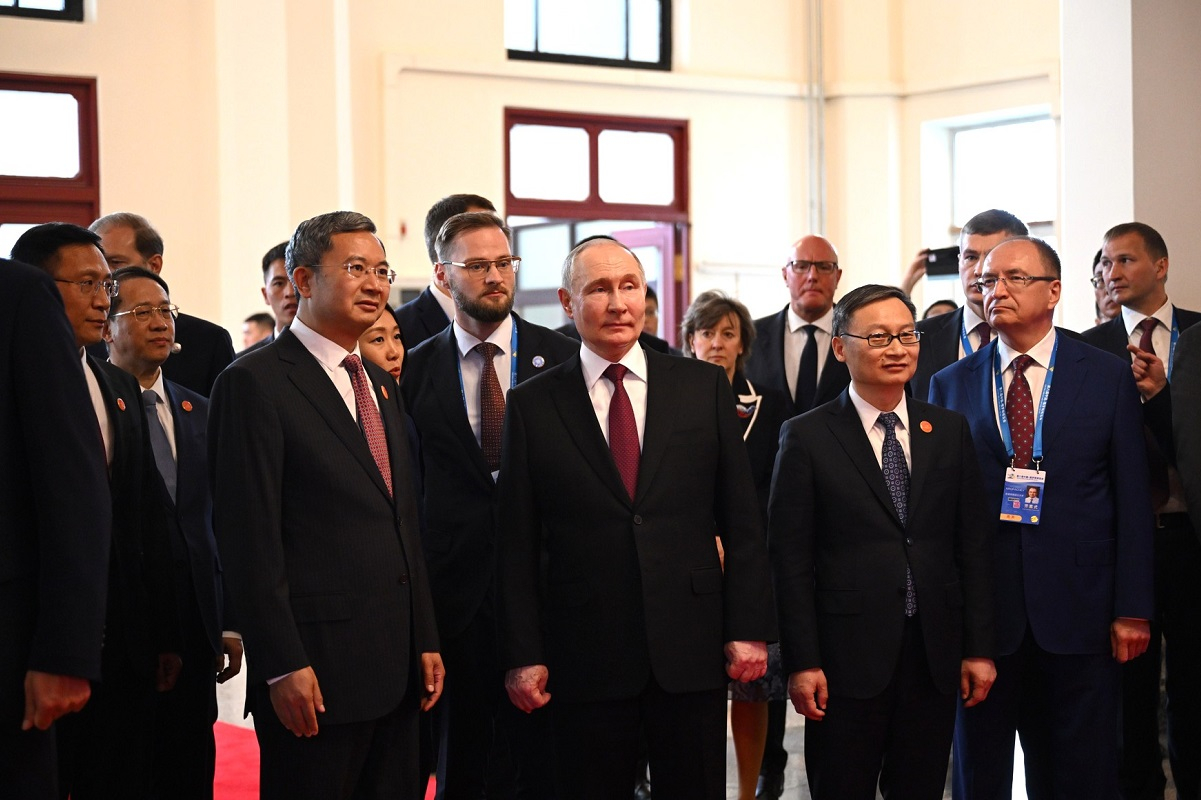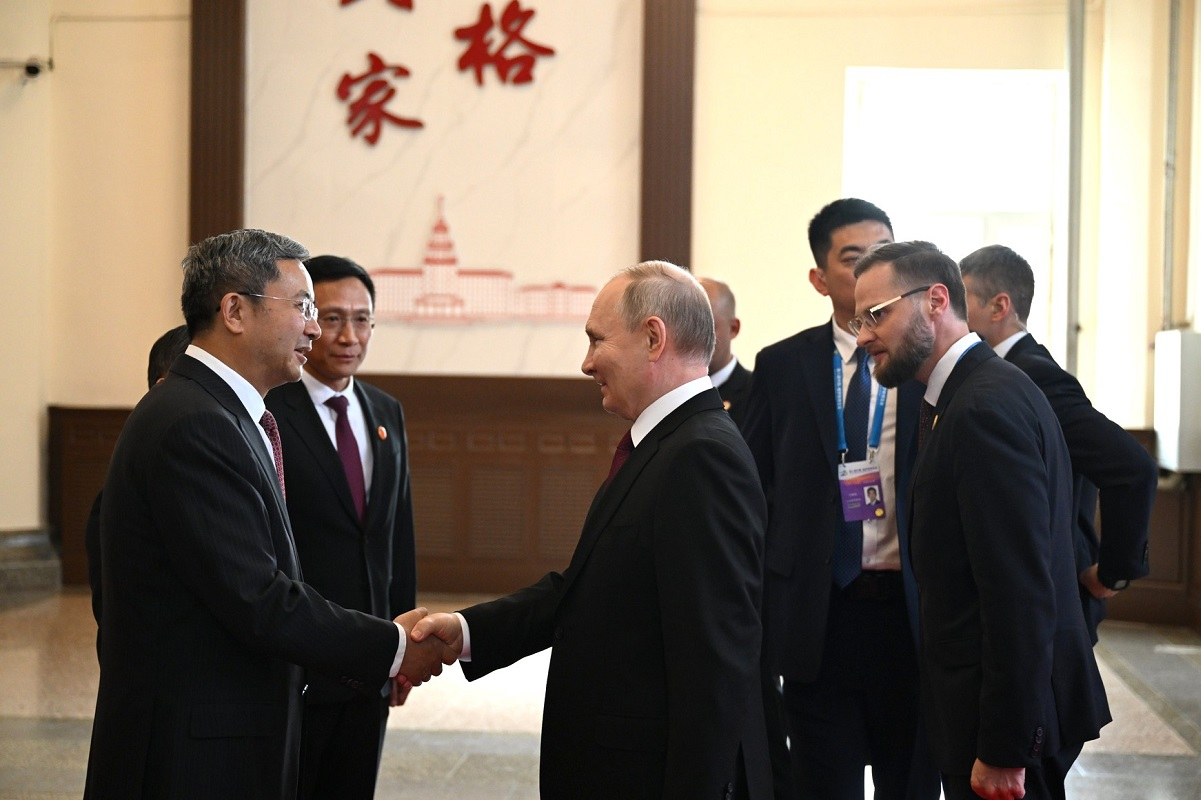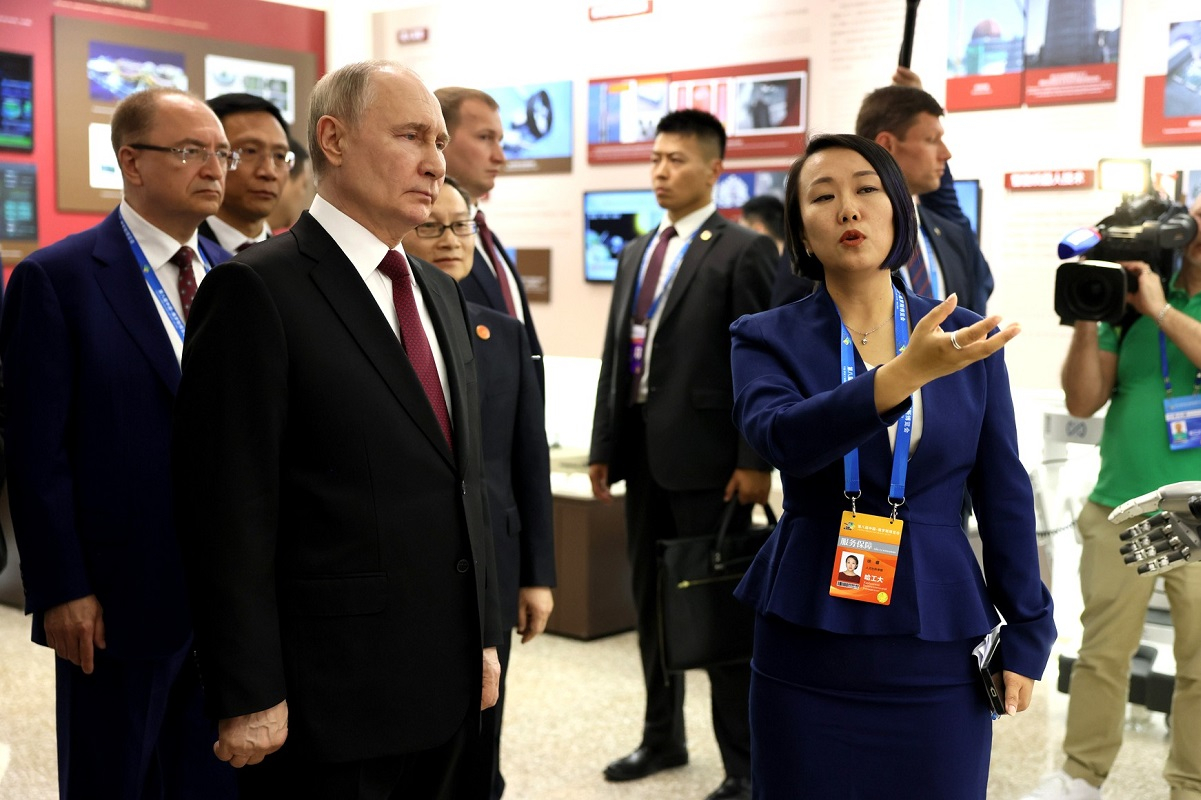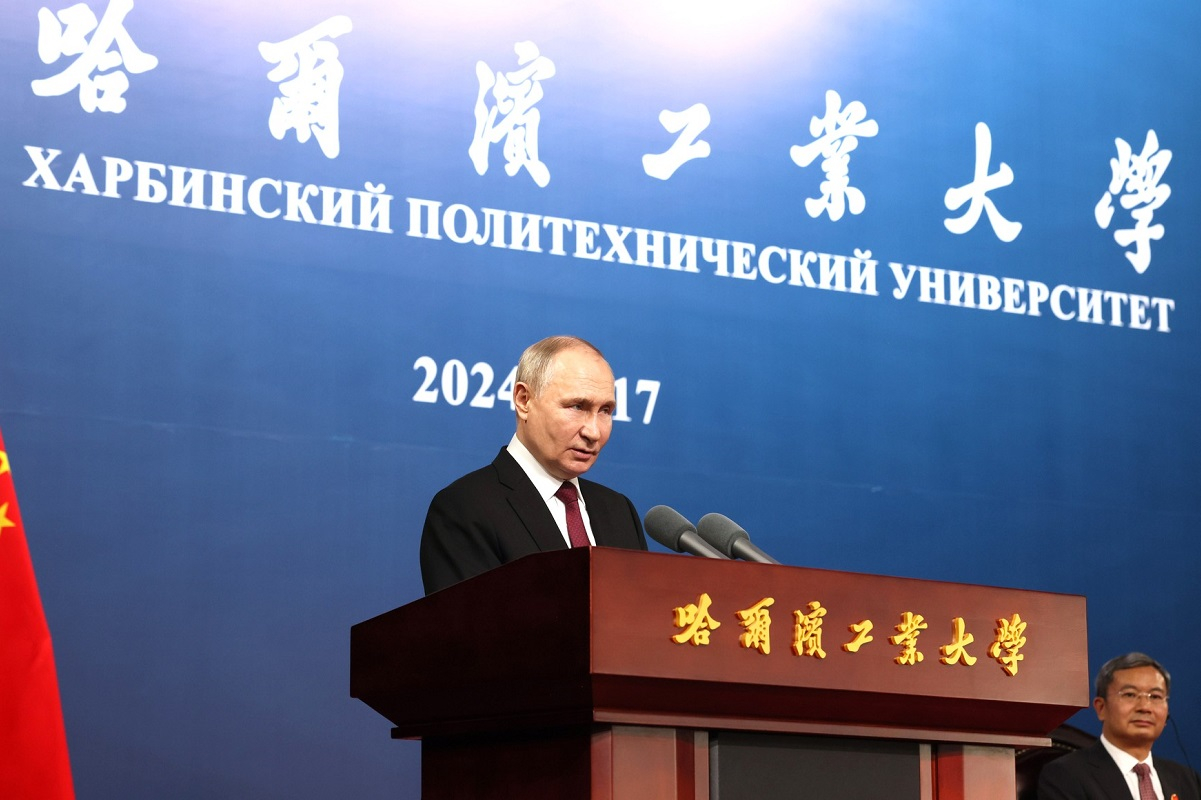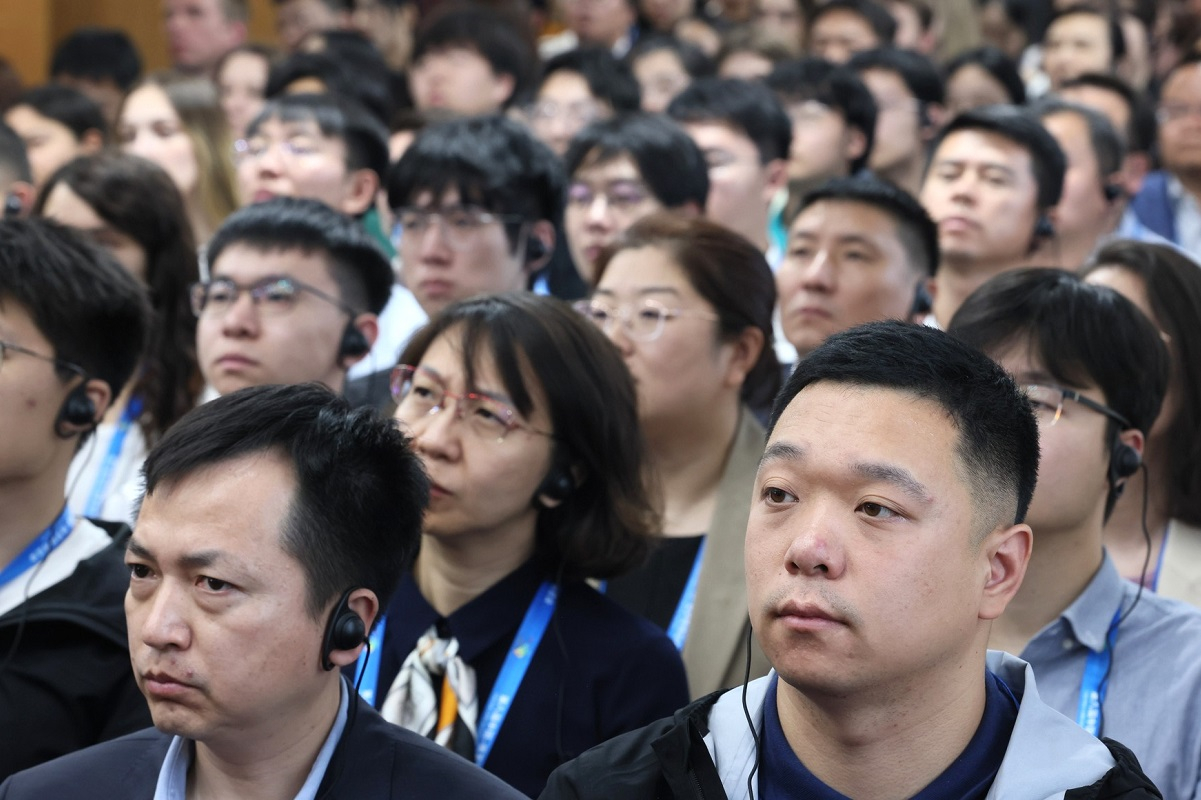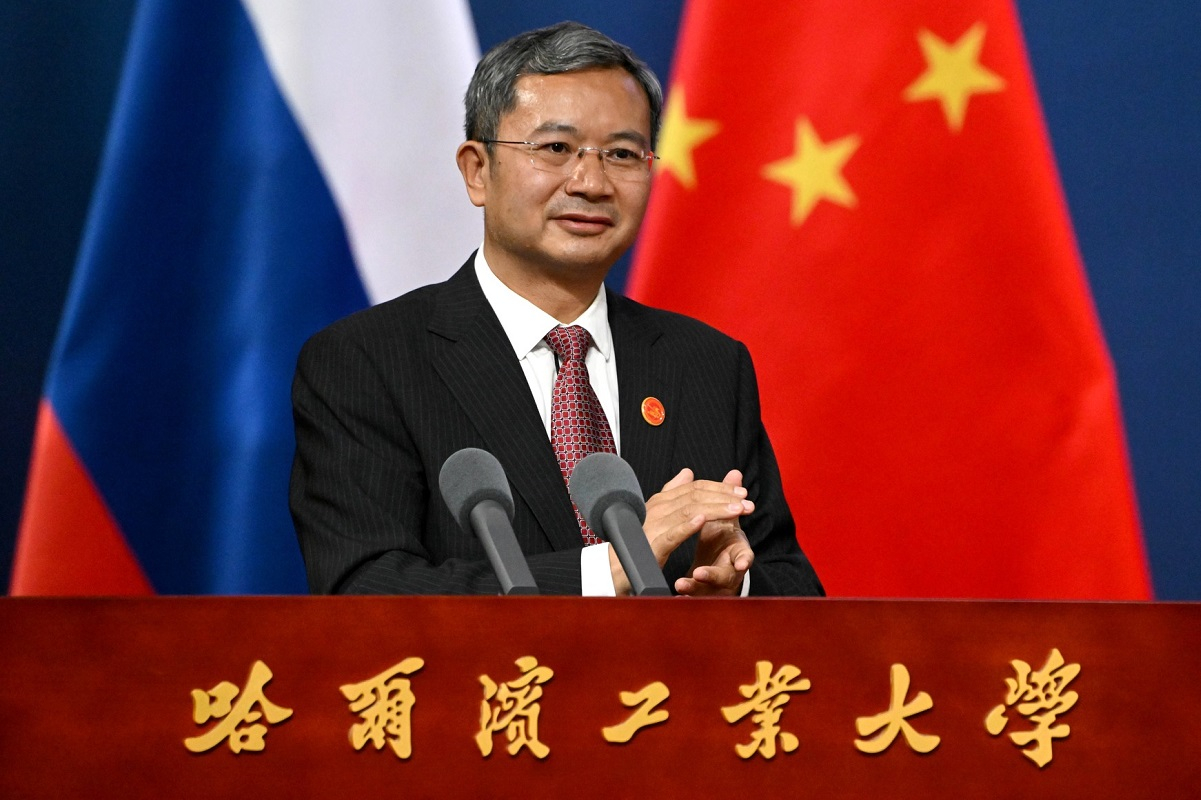Russian President Vladimir Putin: The campus of St Petersburg University and Harbin Institute of Technology will become a leader in Russian-Chinese science and education cooperation in the near future
As part of the 8th Russia-China EXPO and the 4th Russia-China Forum on Interregional Cooperation, President of the Russian Federation Vladimir Putin, a graduate of St Petersburg University, visited the joint campus of St Petersburg University and Harbin Institute of Technology in China. During a meeting with Chinese and Russian students and faculty at the university, the President noted that the educational centre being created will become a leader in Russian-Chinese science and education cooperation in the near future.
Vladimir Putin speaks about a future leader in Russian-Chinese science and education cooperation
The joint project of St Petersburg University and Harbin Institute of Technology will contribute to the training of top class professionals who will be able to solve problems in the priority areas of development of Russia and China more efficiently.
Over 1,500 Russian and Chinese students will study mathematics, physics, chemistry and other natural sciences under excellence programmes at this centre. I have no doubt that it will become a leader in Russian-Chinese science and education cooperation in the near future.
President of the Russian Federation Vladimir Putin
According to Nikolay Kropachev, Rector of St Petersburg University and Corresponding Member of the Russian Academy of Sciences, the number of Chinese students studying at St Petersburg University is increasing every year. Over the past 10 years, the number has grown from 500 to 2,300 students. In general, the competition among international applicants today is 21 applications for one place. The number of degree programmes attended by Chinese students has increased 15 times. The number of programmes with a Chinese component has also increased significantly.
Today, St Petersburg University is actively developing cooperation with the People’s Republic of China. St Petersburg University implements 91 academic programmes with a Chinese component. The University’s scholars regularly produce joint scientific publications: over 1,200 research papers have been published in scholarly journals in the last five years.
Nikolay Kropachev, Rector of St Petersburg University, Corresponding Member of the Russian Academy of Sciences
St Petersburg University is the first Russian university to enter into an agreement on interaction with the China’s largest national massive open online courses platform XuetangX and gain access to the China National Knowledge Infrastructure (CNKI).
During the 8th Russia-China EXPO and the 4th Russia-China Forum on Interregional Cooperation, St Petersburg University has organised a business programme. St Petersburg University academics will hold open lectures for Russian and Chinese students. Ruslan Valiev is Head of the Laboratory for Mechanics of Advanced Bulk Nanomaterials for Innovative Engineering Applications at St Petersburg University, established within the framework of the mega-grants programme of the Government of the Russian Federation. He will talk about the laboratory’s activities and current research. Rodion Reznik is Head of the Laboratory of New Semiconductor Materials for Quantum Informatics and Telecommunications at St Petersburg University. He will explain how the University is today developing the legacy of Alexey Ekimov, Nobel Laureate in Chemistry and a graduate of St Petersburg University, and continuing to work on quantum technologies for microelectronics. A lecture on chemistry will be delivered by Regina Islamova, Professor of St Petersburg University. Tatiana Matveeva, Professor of the University, will talk about the development of genetics and biotechnology. Elena Gubar, Associate Professor of the University, will deliver a lecture on game theory, i.e. a mathematical method for studying optimal strategies used in games and for solving complex mathematical problems.


